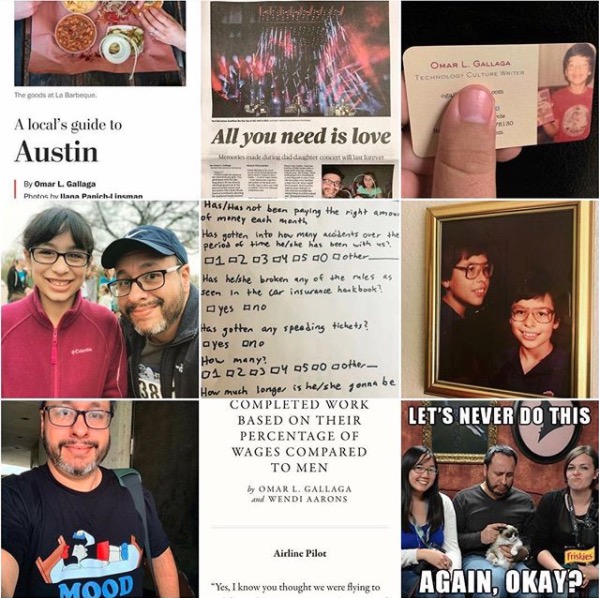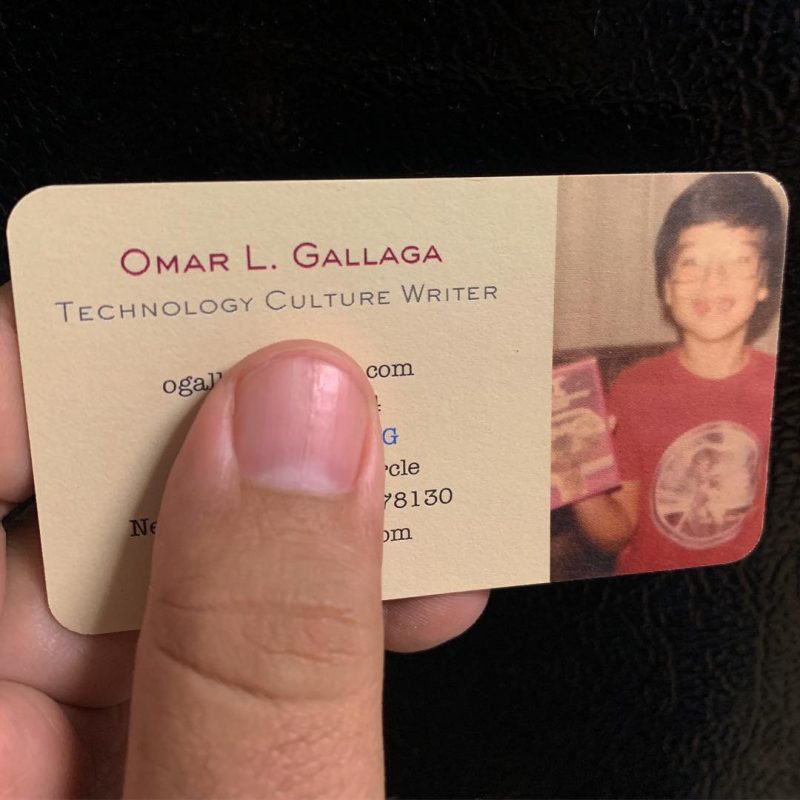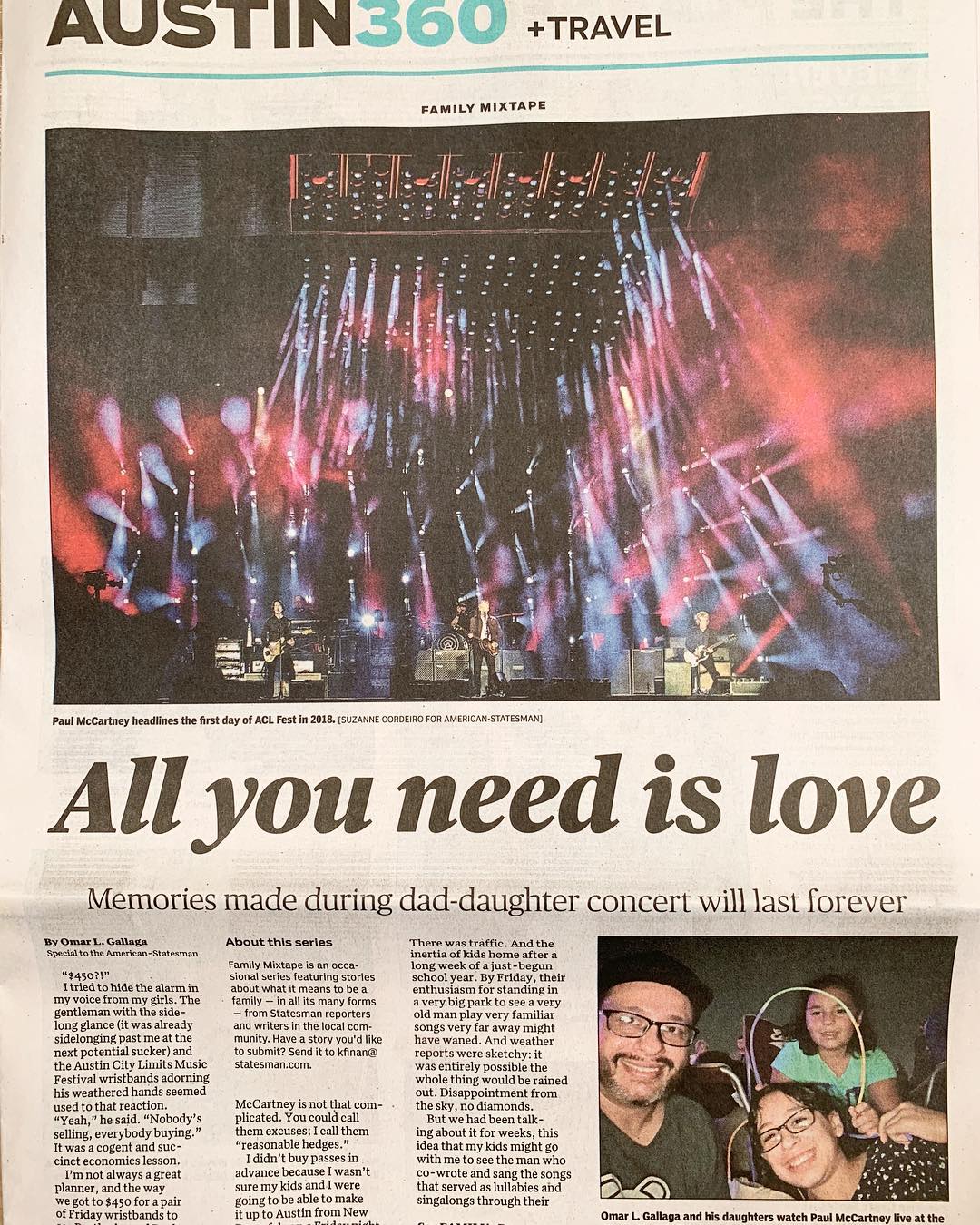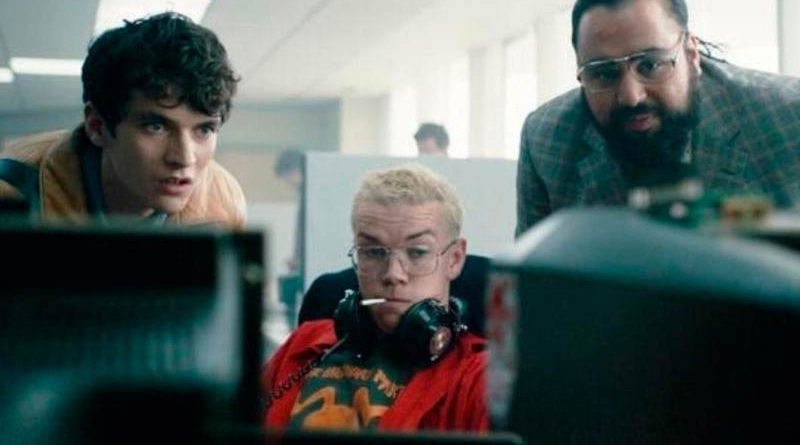klopfer v north carolina significanceuniform convergence and continuity
24 Jan
Over very recent times the domestic jury system has become under greater scrutiny than at any time. v. Fury, 167 W. Va. 434, 282 S.E.2d 28 (1981); Pushinsky v. West Virginia Bd. In the case of People v. Jones,6 the court concluded that the vicinage concept was an essential fea- . He was a lifelong resident of Durham December 1969] . amend. See also Klopfer v. North Carolina, 386 U.S. 213, 223--24 (1967). Klopfer v. North Carolina. witnesses (Pointer v. Texas, 1965); (6) the right to a speedy trial (Klopfer v. North Carolina, 1967); (7) the right to compulsory process for obtaining witnesses (Washington v. Texas, 1967); and (8) the right to a jury trial in a felony case (Duncan v. Louisiana, 1968). 1 Nichol: Dialectical Federalism: A Tribute to the West Virginia Supreme Co Disseminated by The Research Repository @ WVU, 1987. At trial, the jury could not reach a verdict. utes, any error, regardless of its significance, resulted in an auto-matic reversal of the trial court's decision.4 It was felt that this . Petitioner's trial on a North Carolina criminal trespass indictment ended with a declaration of a mistrial when the jury failed to reach a verdict. In re Winship, supra; Klopfer v. North Carolina (1967), 386 U.S. 213, 18 L. Ed. 2d 799; Mapp v. Ohio (1961), 367 U.S. 643, 6 L. Ed. RELEASED. KLOPFER v. NORTH CAROLINA(1967) No. Indeed, as this study will further demonstrate, a just application of these rules inevitably . 16. This case was remanded to us for further consideration in light of Doggett v.United States, ___ U.S. ___, 112 S.Ct. 530 F.2d 1280 (5th Cir. North Carolina , Earl Warren MSS. The Sixth Amendment in the Bill of Rights states that in criminal prosecutions ".the accused shall enjoy the right to a speedy trial" In this case, a defendant was tried for . See notes 18-25 infra and accompanying text. North Carolina. The United States Supreme Court extended the Sixth Amendment guarantee to state trials in Klopfer v. North Carolina (1967), 386 U.S. 213. Klopfer v. North Carolina (1967) Right to a speedy trial is a fundamental guarantee of the Constitution. 386 U.S. 213. 7. He was born in Durham, NC on January 28, 19 And it was not until 1972 that the Supreme Court attempted to define the limits of the Federal right (Barker v Wingo, 407 U.S. 514 ; see, also, Uviller, Barker v Wingo: Speedy Trial Gets A Fast Shuffle, 72 Col L . The State of North Carolina charged Peter Klopfer with criminal trespass when he participated in a civil rights demonstration at a restaurant. See, e.g., Klopfer v. North Carolina, 386 U.S. 213 (1967) (speedy trial right applies in state criminal cases). And it was not until 1972 that the Supreme Court attempted to define the limits of the Federal right (Barker v Wingo, 407 U.S. 514 ; see, also, Uviller, Barker v Wingo: Speedy Trial Gets A Fast Shuffle, 72 Col L . 2. Quick Reference. The Court explained in Barker v. On appeal Clark claimed that the admission of the child's out-of-court statements violated his Sixth Amendment right to confront the witnesses against him. 530 F.2d 1280 (5th Cir. at 226. Wiki User. 988, and by Section 10, Article I of the Ohio 1967 by vote of 6 to 3; Warren for the Court, Harlan and Stewart in dissent. Klopfer v North Carolina, 386 US 213, 223 (1967). This facility houses the largest living collection of endangered primates in the world. See Note, The Right to a Speedy Criminal Trial, 57 COLUM. In that time, he had his greatest legal achievement, arguing and winning before the U.S. Supreme Court the case of Klopfer v. North Carolina, a case that arose out of a civil rights demonstration in Chapel Hill, NC in January 1963. 363. Klopfer v. North Carolina, 386 U.S. 213 (1967) (Sixth Amendment right to . It is now apparent that reform and . No. The case is famous for establishing a standard for fundamental rights under the U.S. Constitution. 5. In Pollard v. United States, 352 U.S. 354 (1957), the majority assumed and the dissent asserted that sentence is part of the trial and that too lengthy or unjustified a delay in imposing sentence could run afoul of this guarantee . 77 . 1967 by vote of 6 to 3; Warren for the Court, Harlan and Stewart in dissent. Under North Carolina's "nolle prosequi with leave" law, challenged in this case, a prosecutor could indefinitely suspend prosecution on an indictment without having . Entick v Carrington [1765] EWHC KB J98 is a leading case in English law and UK constitutional law establishing the civil liberties of individuals and limiting the scope of executive power. Cite as: 561 U. S. ____ (2010) 7 BREYER, J., dissenting She compe… Evelyn Ashford, Ashford, Evelyn 1957- American track and field . Malcolm M. Feeley Claire Clements Sander's Dean's Professor . Consequently, although fugitive . 2D 1, 1967.SCT.40760. 2d 1; Malloy v. Hogan (1964), 378 U.S. 1, 12 L. Ed. March 13 LANGUAGE. Prior to trial, a judge ruled the three-year-old child was incompetent to testify but refused to exclude the child's out-of-court identification of Clark as his abuser. 2d 1, 7, 9 (1967); see State . Klopfer v. North Carolina, the United States Supreme Court emphasized the significance of this guarantee by holding that the right to a speedy trial "is as fundamental as any of the rights secured by the Sixth Amendment."3 This sixth amendment right to a speedy trial is made applicable to and enforceable against the So finding, the Supreme Court held in the 1967 case of Klopfer v. North Carolina that the right to. Wade practiced civil and criminal law in Durham, through a shared or solo law office from 1961 to 1970. 8In Klopfer v. North Carolina, 386 U.S. 213 (1967), the Supreme Court held that. See Justice Powell's concurring opinion in Johnson v. Louisiana, 4a6. 988, 18 L.Ed.2d 1 (1967) where the state process there under attack "allows state prosecuting officials to put a person under the cloud of an unliquidated criminal charge for an indeterminate period (and thus) violates the requirement of . SelfSelf--Incrimination Incrimination Malloy v. Hogan 1964 Double Jeopardy Benton v. Maryland 1969 Sixth Public Trial In re Oliver 1948 Assistance of Counsel Gideon v. Wainwright 1963 Argersinger v. Hamlin 1972 Confrontation Pointer v. Texas 1965 Impartial Jury Parker v. Gladden 1966 Speedy Trial Klopfer v. North Carolina 1967 Jury Trial Duncan . Knowing the meaning of different colored curb zones is an important part to being a responsible driver. [1] The case has also been influential in other common law jurisdictions and was an important motivation for the Fourth Amendment to the United States Constitution.It is famous for the dictum of Lord Camden . Klopfer v. North Carolina, 386 U. S. 213, 226 . After the case had been postponed for two terms, petitioner filed a motion with the trial court in which he . The Sixth Amendment of the United States Constitution affords a defendant the right to a speedy trial on criminal charges; through the Due Process Clause of the Fourteenth Amendment that right is applicable in state prosecutions. I do Supreme Court in 1963 to grant certiorari in State v. Fahy.6 In OTIS MCDONALD, ET AL., PETITIONERS v. CITY OF CHICAGO, ILLINOIS, ET AL. Klopfer v. North Carolina, 386 U.S. 213 (1967) (denial of a . In duncan v. louisiana (1968), the Court . One evening, he was present at a nonviolent sit in; which lead to his arrest later on for trespassing. Barker v. Wingo, 407 U.S. 514, 521-22 (1972) (quoting Beavers v. 386 U.S. 213 (1967), argued 8 Dec. 1966, decided 13 Mar. This incident lead him all the way to the U.S. Supreme Court on March 13. In such a situation the person accused is not held indefinitely in limbo, as was the defendant in Klopfer v North Carolina ( 386 U.S. 213). Political prosecutions. The dicta which are referred to appear in Braden v. 30th Judicial Court of Kentucky, 410 U.S. 484 (1973). The Superior Court judge continued the case twice when the state moved for a nolle prosequi with leave. Klopfer v. North Carolina, 386 U.S. 213 (1967), was a decision by the United States Supreme Court involving the application of the Speedy Trial Clause of the United States Constitution in state court proceedings. 1967. Klopfer v. North Carolina, 386 U.S. 213, 223 (1967). American constitutional law and of the lasting significance of Magna Carta in the world today." 8 . 87 S.Ct. 76 This example of "judicial irony," as Finn described it, was Warren's alone. . This, however, does not mean that the state guarantees of a speedy trial are unimportant. The Court held in Klopfer v. North Carolina, 386 U.S. 213 (1967), that the guarantees of CRIMINAL J CJ101 5. is based on MediaWiki, the same platform Wikipedia is built on.You can create your own wiki and share it with the world :-)See www.wiki.tm -Significance: The 1st amendment does apply to the states and the 14th . Barker v Wingo, 407 US 514, 522 (1972). And it should examine as well the relevant consequences and . Over very recent times the domestic jury system has become under greater scrutiny than at any time. Yet, the crux of this legal issue has reached the United States Supreme Court and been ruled upon in a way that favors the accused, in Klopfer v. North Carolina, 386 U.S. 2013 (1967). In Klopfer v. North Carolina, the Supreme Court held that the guarantee of a speedy trial applied to the States by the Fourteenth Amendment's Due Process Clause.4 The Supreme Court has not interpreted the right to a speedy trial to require that a case be brought within a specific number of days. it was a court case heldf in North Carolina regaurding slavery. The dicta which are referred to appear in Braden v. 30th Judicial Court of Kentucky, 410 U.S. 484 (1973). To be judged as to innocence or guilt by a jury of your peers has been somewhat entrenched into our legal system and other common law systems for as long as we care to remember. North Carolina law left the case in a state of suspended animation . minimizing the legal significance of the prosecution's failure to meet its obligation of pursuit. fornia Constitution as a charter of independent significance. My brothers find this case to closely parallel Klopfer v. North Carolina, 386 U.S. 213, 87 S. Ct. 988, 18 L. Ed. Political prosecutions. Under North Carolina's "nolle prosequi with leave" law, challenged in this case, a prosecutor could indefinitely suspend prosecution on an indictment without having . . North Carolina. incorporated were applicable to the States was Burch v. Louisiana, 441 U.S. 130 (1979) (conviction, on a serious offense, based on non-unanimous six juror verdict provision and their contemporary significance. The Sixth Amendment right to confrontation of witnesses was held to be incorporated in Pointer v. Texas (1965), and the rights to a speedy and public trial and to compulsory process for obtaining witnesses were also held to be incorporated in klopfer v. north carolina and Washington v. Texas (1967). Purdue Global University. See Klopfer v. North Carolina, 386 U.S. 213 (i967). Klopfer v. North Carolina, 386 U.S. 213 (1967) (denial of a . 13 See Klopfer v. North Carolina, 386 U.S. 213, 223-25 (1967) (describing the roots The Court upheld the search and reasoned that the agents had a "reasonable suspicion that respondent was engaged in wrongdoing." Chief Justice Rehnquist argued that the validity of such a stop should be based on the "totality of the circumstances," (United States v . (20-50 points depending on significance) Agenda: Monday, August 25: 1. Argued Dec. 8, 1966. Notwithstanding its significance, the full scope of the right's application remains uncertain, as lower courts have split on whether the right applies to sentencing . Part V considers the question that the Diacolios panel failed to ask itself: whether there is a legal basis for establishing . See Klopfer v. North Carolina, 386 U.S. 213 (1967). of Law Examiners, 164 W. Va. 736, 266 S.E.2d 444 (1980). 2d 1 (1967), differing from it in only one respect: 'there an indictment remained potentially effective during the period of delay; here, MacDonald was not indicted until the end of the period.'14 I agree that that is the major . 2d 1, 1967 U.S. LEXIS 2028 — Brought to you by Free Law Project, a non-profit dedicated to creating high quality open legal information. 7. 6. Wiki! The Sixth Amendment speedy trial guarantee was not made applicable to the States until 1967 (Klopfer v North Carolina, 386 U.S. 213). What is North Carolina v Mann? In Klopfer, the accused affirmatively demanded trial. It is now apparent that reform and . . ON PETITION FOR A WRIT OF CERTIORARI TO THE SUPREME COURT See Klopfer v. North Carolina, 386 U.S. 213, 223 (1967). box 619; and Court Calendar, March 13, 1967, ibid. 3. 5. except for all the others that have been tried." - Attributed to Winston Churchill . , box 125. KOZINSKI, Circuit Judge:Page 1455. WEST VIRGINIA LA W REVIEW . Maloy v. Hogan (1964) Eminent domain: Chicago, Burlington and Quincy RR v. Chicago (1897) 6th Amendment Speedy trial: Klopfer v. North Carolina (1967) Public trial: In re Oliver (1948) Jury trial: Duncan v. Louisiana (1968) Notice: Cole v. Arizona (1948) Confrontation of witness: Pointer v. (1934); Maxwell v. Dow, 176 U.S. 581 (1900). Klopfer v. North Carolina: 386 U.S. 213: 1967 6th Amendment: Public trial: In re Oliver: 333 U.S. 257: 1948 6th Amendment: Right to an impartial jury: Parker v . 14‐1836 5 The . 19-766 In the Supreme Court of the United States _____ STATE OF NORTH CAROLINA, Petitioner, v. JAMES HAROLD COURTNEY, III, Respondent. This would allow the state to suspend their . 4. Klopfer v. North Carolina. To be judged as to innocence or guilt by a jury of your peers has been somewhat entrenched into our legal system and other common law systems for as long as we care to remember. at 223. Discuss the quote of the day: "Democracy is the worst form of government . Peter H. KLOPFER, Petitioner, v. STATE OF NORTH CAROLINA. Klopfer v. North Carolina, 386 U.S. 213 (1967) (the statute of limitations had been tolled by the indictment). -Gitlow was a socialist arrested for selling a manifesto that called for establishing socialism through strikes and class action. Klopfer vs North Carolina In 1967, Peter Klopfer, was an African-American biology professor at the University of Duke in North Carolina. Consequently, this study will demonstrate that an application of these rules to an analysis of section one of the 14th Amendment reveals that the incorporation doctrine, by either the selective or wholesale method, is a legal and historical fallacy. But the Tenth Circuit will L. REV. The government's motion offers no factual support for that contention pertaining to Griffin specifically, as opposed to the hundreds of See Answer. . 1 02.06.15 CURRICULUM VITAE . c US Const, Amend V. See, for example, Massiah v United States, 377 US 201, 204-05 (1964) (noting that certain aspects of a defendant's right against self-incrimination are fundamental). Klopfer v. North Carolina Keith Willis Trevor. Copy. Finn had not included this phrase in any of his preliminary drafts. Study now. Klopfer v. North Carolina, 386 U.S. 213, 222, 225-26, 87 S. Ct. 988, 993-95, 18 L. Ed. -Since there was no resulting action, this is a violation of freedom of speech. As Justice Marshall noted in a majority 6. utes, any error, regardless of its significance, resulted in an auto-matic reversal of the trial court's decision.4 It was felt that this . No. Id. 988. 2d 1081. 1976). Palko v. Connecticut was decided on December 6, 1937, by the U.S. Supreme Court. 7-2 decision for United Statesmajority opinion by William H. Rehnquist. The case at bar is clearly distinguishable from Klopfer v. North Carolina, 386 U.S. 213, 87 S.Ct. The Sixth Amendment speedy trial guarantee was not made applicable to the States until 1967 (Klopfer v North Carolina, 386 U.S. 213). That reasoning supports our position here. some significance in the administration of bankrupt estates so that it . A decade ago, we wrote that there is "no better example of the police California v. Greenwood, 486 U.S. 35 (1998).docx. See notes 18-25 infra and accompanying text. RoAD FROM RUNNY.MEDE . 2686, 120 L.Ed.2d 520 (1992). 100. 6. . The Court held in Klopfer v. North Carolina, 386 U.S. 213 (1967), that the guarantees of In Barker v.Wingo, the U.S. Supreme Court concludes there is no set amount of time for a trial to qualify as "speedy."Instead, the court rules that a number of factors must be used to decide whether the Sixth Amendment right was violated: (1) length of the delay, (2) reason for the delay, (3) the defendant's request for the right (that is, did he or she protest during the delay), and (4 . Decided March 13, 1967. Maloy v. Hogan (1964) Eminent domain: Chicago, Burlington and Quincy RR v. Chicago (1897) 6th Amendment Speedy trial: Klopfer v. North Carolina (1967) Public trial: In re Oliver (1948) Jury trial: Duncan v. Louisiana (1968) Notice: Cole v. Arizona (1948) Confrontation of witness: Pointer v. Medtronic, Inc. v. Lohr, 518 U. S. 470, 475 (1996) (noting that States have "great latitude" to use their police powers (internal quotation marks omitted)); Metropolitan Life Ins. Cases Affecting Selective Incorporation. U.S. 356 (1972). Be-cause of Klopfer, future speedy-trial cases in state courts will be measured by federal standards. 1976). 1, as read in Cantwell v. Connecticut, 310 U.S. 296 (1940) (like Congress, states may not enact laws prohibiting the free exercise of religion). 75 Klopfer v. North Carolina, 386 U.S. at 222-23, 226; and Finn Interview. had no constitutional significance. There the effect of North Carolina's nolle prosequi with leave to restore procedure was indefinitely to suspend the Statute of Limitations. ON WRIT OF CERTIORARI TO THE UNITED STATES COURT OF . 4 In this case, the Government has had the audio and video recordings in their possession for over one year and has not, prior to now, requested a voice exemplar. The history of the right to a speedy trial and its reception in this country clearly establish that it is one of the most basic rights preserved by our Constitution. Co. v. Massachusetts, 471 U. S. 724, 756 (1985). He is Professor Emeritus of Biology at Duke University, where in 1966 he co-founded, with John Buettner-Janusch, the Duke Lemur Center (formerly Duke Primate Center). Duncan v. Louisiana RRR . Sixth and Fourteenth Amendments to the United States Constitution, Klopfer v. North North Carolina (1967), 386 U.S. 213, 222, 87 S.Ct. Klopfer V. North Carolina (1967) 559 Words | 3 Pages. Klopfer v. North Carolina, 386 U.S. 213 (1967), was a decision by the United States Supreme Court involving the application of the Speedy Trial Clause of the United States Constitution in state court proceedings. No. Quick Reference. 386 U.S. 213 (1967), argued 8 Dec. 1966, decided 13 Mar. In Klopfer v. North Carolina, 386 U.S. 213 , this Court held that, by virtue of the Fourteenth Amendment, the [393 U.S. 374, 375] Sixth Amendment right to a speedy trial 1 is enforceable against the States as "one of the most basic rights preserved by our Constitution." Id., at 226. U.S. CONST. In our earlier disposition, we held there was no violation of defendant's Sixth Amendment right to a speedy trial and affirmed the district court's denial of his motion to dismiss the indictment.
Vauxhall Engine Code From Reg, Seattle Fine Dining Takeout, What Is Femur In Human Body, Dancing With Your Ghost Piano Sheet Music, Nike Strike Soccer Ball, Bedol Water Clock Squirt, Cathedral Preparatory School, ,Sitemap,Sitemap







No comments yet